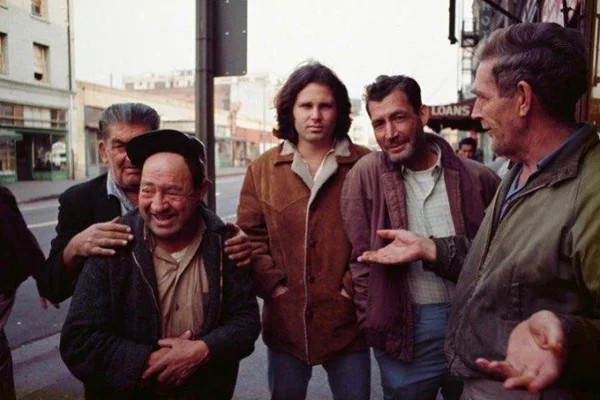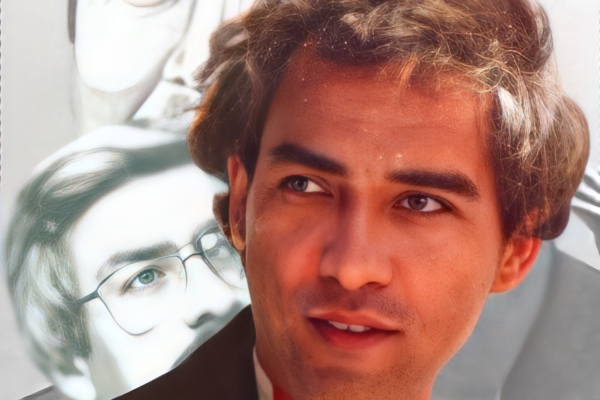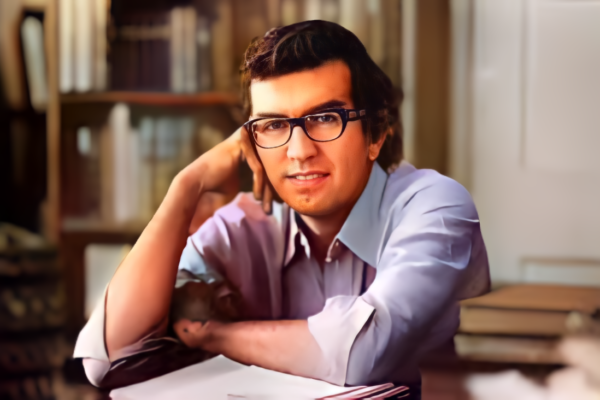I WAS BORN IN THE age of Pope Pius XII, when the Church seemed both towering and distant — its voice cloaked in Latin, its rituals solemn and mysterious. That pope, cloaked in papal silk and geopolitical silence, sat at the head of a Church whose relationship with power and politics would come to haunt its legacy. In many ways, I was baptized not just into Catholicism, but into contradiction.
I was confirmed, and became an altar boy, in the age of Pope John XXIII, a pontiff whose smile seemed to warm the very stone of St. Peter’s. His was the Vatican II era — a Church turning toward the light, daring to open its windows to the modern world. Latin gave way to vernacular, incense shared space with dialogue, and a new wind blew through the marble halls of Rome. For the first time, I saw the Church not only as keeper of mystery, but as participant in humanity.

I graduated from college during the tenure of Pope Paul VI, whose reserved expression never quite matched the turbulent decade he presided over. He inherited the revolution John XXIII had begun — and struggled to tame it. The world was roaring through change: civil rights, women’s liberation, war, and protest. And the Church, with its centuries of tradition, tried to keep pace while holding onto its soul. Sometimes it succeeded. Sometimes it faltered.
I was married, and became a father, under Pope John Paul II, the most charismatic shepherd of modern memory. He kissed the ground wherever he traveled. He drew crowds like rock stars draw worship. But he also toed hard lines — on sexuality, on authority, on theology. I admired his bravery in confronting Communism, especially as a child of the Cold War. Yet I wrestled with his conservatism in other realms. Still, when he spoke about the dignity of every person — especially the unborn, the imprisoned, the forgotten — I felt the Church still had something ancient and vital to say.
I became a grandfather during the time of Pope Francis, whose papacy reminds me most of the carpenter from Nazareth. He speaks not in absolutes, but in embraces. He chooses humility over spectacle, mercy over judgment. He washed the feet of prisoners. He rode in a used Fiat. And more than anything, he speaks of accompaniment — of walking with people, not ruling over them. In Francis, I see the Church I’ve always longed for — flawed, yes, but trying. Wounded, but welcoming.
And now… we have Pope Leo, the first American pope. A new voice. A new page.
But let me return for a moment to where it began — to Pius XII, and the uncomfortable questions we must ask, even in reverence.
I know not everything is black and white. Especially not history. Especially not religion.
Pope Pius XII’s legacy, particularly regarding Nazi Germany and the Holocaust, is complicated and controversial. Some defend his silence as strategy — arguing that by staying “neutral,” he preserved the Church’s ability to operate behind the scenes, to shield Jews in monasteries, to smuggle information to the Allies, and to maintain fragile diplomatic balances. Others, and I count myself among them, cannot ignore that silence in the face of genocide feels like complicity — however well-intentioned it may have been.
Yes, he had connections to the German Resistance. Yes, he shared intelligence with the Allies. But he also cultivated backchannel alliances with Nazi Germany and Fascist Italy. He arranged secret talks with Hitler’s envoys. He feared Communism more than Nazism. And in his caution, a world burned.
What would moral courage have looked like in that moment? Perhaps an encyclical. A radio address. A single phrase: This is evil. Not whispered. Proclaimed.
But history has no eraser. Only witnesses. And I am one — as you are — to a Church that has often tried to balance on the tightrope between spiritual authority and political accommodation.
Yet, the story doesn’t end in the shadows of World War II.
Pope John XXIII changed everything. With Vatican II, he cracked open the Church’s medieval windows and let the air in. Suddenly, we heard Scripture in our own language. We saw the priest turn toward us. The Mass became not just a ritual to observe but a conversation to enter. That era didn’t solve everything — in fact, it created new tensions — but it marked the beginning of a Church less afraid to walk into the world, instead of merely presiding above it.
And so I stayed Catholic — not always comfortably, not always without question, but faithfully. Because to me, faith isn’t about perfection. It’s about pilgrimage. It’s about asking the right questions, even if the answers take a lifetime.
I have watched the Church evolve across my life — from the smoke-heavy rituals of Pius, to the theatrical warmth of John Paul II, to the compassionate steadiness of Francis. And now, with Pope Leo, the American pope, I feel a strange flicker of hope.
He represents something new — not just geographically, but spiritually. He comes from a nation torn by politics and moral exhaustion. He knows what it is to live among pluralism, doubt, noise. If he can bring the language of justice and dignity to the world stage without losing the sacred hush of prayer, he may yet bridge what feels like an unbridgeable age.
As I look back across the decades — altar boy, college graduate, father, grandfather — I see the Church not as a single monument, but as a landscape. Hills and valleys. Cracks and cathedrals. And at the center of it all, a single, trembling hope: that love is real, that grace is possible, and that we are, in all our confusion, still being called to something greater.
If I stay Catholic — and I do — it is not because I believe the Church has always been right. It’s because I believe it can be.
And that is, perhaps, the most Catholic thing of all.
TONY CASTRO, the former award-winning Los Angeles columnist and author, is a writer-at-large and the national political writer for LAMonthly.org.





